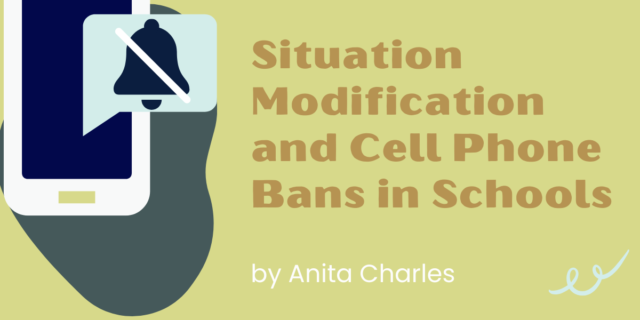
It’s not often your favorite author asks you to co-write their next book, but that’s exactly what happened to Ken Lindblom when he met Leila Christenbury at a NCTE lunch a couple of years ago. Ken was telling Leila how influential her book, Making the Journey, had been to him as he started his teaching career and then to his education students. Leila suggested that with the right partner a new edition might be possible and from there, the duo teamed up. Listen as Leila and Ken offer up timeless advice, humorous anecdotes, and stories of successes and failures in the classroom that they have infused into the 4th edition of Making the Journey. They instill confidence in soon-to-be English teachers, and that’s where we started our conversation.

See below for the full transcript of this podcast:
Brett: What would you say are some of the biggest changes you've seen in teacher education programs since the previous edition of Making the Journey?
Leila C.: I think one of the biggest changes is the presence of media. We’ve certainly seen media’s power and changing platforms for a long while. In the year since the third edition and the fourth edition, media has truly exploded. The use of Twitter, the use of social media, entrance into schools, into the curriculum has really been something that I don’t think any of us anticipated, and I don’t think it’s represented, it couldn’t be represented in the third edition. I think it is represented in the fourth edition.
I certainly would say that one of the best things about the fourth edition is Ken’s presence, because this is an area with which he’s very comfortable. I think the parts in the fourth edition of Making the Journey that Ken has written really provide a lot of support for teachers, and also really make clear the context of social media and media in teacher preparation, and also for novice teachers. I do.
Ken Lindblom: Leila, you’re exactly right, especially about the platforms. It wasn’t that long ago that texting was brand-new and seemed like a passing fad frankly. Teachers were most worried about the fact that texting language was interfering with the way the students were using standardized English. That was an enormous fight that we barely hear anymore. Then Twitter, and Facebook really started to change the way that students talk to each other. Snapchat, Instagram-
Leila C.: Tumblr.
Ken Lindblom: Right, Tumblr, the blogging program. There is a lot of ways that students are talking to each other now. Powerful, important ways that have impact, and now it’s well beyond young people. Now it’s the entire globe speaking to each other using these platforms, and they’re very different in terms of the kind of information that people share with them, the amount of information they can share, the linking possibilities, the use of memes, the use of infographics. All of this has gotten tremendously complicated. There was a point where I think English teachers thought, “This isn’t real discourse, so we can leave it outside the classroom.
Leila C.: Absolutely.
Ken Lindblom: It is clearly real discourse, and it has a place in the classroom. That kind of media is very important, and we need to engage students in critical study of it, and the ability to use it effectively, and hopefully for good. In addition to those platforms, now collaboration software has gotten very ubiquitous, and people are writing together much, much more than they used to because of things like Google drive, and similar programs, WordPress blogs, other platforms that allow people to write together on one particular document. Voice thread is another, and these are all ways that students can easily collaborate with each other on the writing. It’s not just a fear of a different kind of discourse, or even an embracing of a different kind of a discourse, but the way we compose discourse is radically changing just over the last six, seven years?
Leila C.: Absolutely. I think it’s a cross generation, so it means students, their parents, their grandparents are participating in all of this. This is a really universal kind of facility. There was one point where [inaudible 00:03:22] put regularly in their curriculum it was important that students know how to create their own webpages. Well, that just seems like the bustle and the hobble skirt, and let’s get into the model T. We are so beyond that. I think if we think about the context of teaching English and language, regimes across the world have fallen or have been threatened through Twitter and social media.
People in developing countries who don’t have really reliable paved roads, or food sources have smart phones, and that’s another thing. I don’t know why you didn’t mention that. I’m going to be real smart and talk about smart phones too. Who would have thought that smart phones would be in the classroom in the way that they are? It’s not just that it’s convenient for cash-strapped [inaudible 00:04:26], the fact that kids will bring their own smart phones, and of course then that’s another issue with access. If they can bring their smart phones, these devices are doing things, for example, that handheld calculators did, what? 25 years ago for our math brothers and sisters with Texas instruments. With smart phones, we can do so much with language. That’s been amazing.
Ken Lindblom: Yeah, another big difference that this is bringing for students is we now have young children writing to the world.
Leila C.: That’s right. That’s right.
Ken Lindblom: That didn’t happen earlier.
Leila C.: Doing video along with the writing.
Ken Lindblom: Correct, yeah, we’ve been talking about writing is, there’s still oral discourse, there’s videos, their Skyping. This has been a revolution. In the newest version of making the journey, we’ve tried to infuse ideas about these kinds of media throughout the entire text. In the earlier drafts of this book, we thought we’d have one chapter on media, and technologies in the classroom, or enhancing your teaching with technology, and we realized along the way that technology was in every chapter all over the place. It didn’t make sense to just have one chapter on technology, mostly because it would quickly become obsolete. Because technology moves so quickly, but the ways in which technology can undergird literacy instruction I think is going to be sustainable and somewhat timeless. That's where we focused. Media runs through the book in that way.
Leila C.: Absolutely. Absolutely. I think another thing that’s changed from the third edition to the fourth edition is this consistent pressure on early career teachers. The issues of retention and nutrition are really with us. I think at one point, the conversation was that there was so many teachers who were getting ready to retire, and so we simply needed to bring more people into the pipeline. The image that’s being used now is not bringing people into the pipeline, but a leaky bucket. We fill the bucket, and then it leaks out.
The percentages on early career teachers who leave in the first three, and then first five years is absolutely daunting. I think, really, for the fourth edition, one of the things we’re talking about is acquiring the skills and the confidence, and also understanding who you are as a human being, a language learner, an intelligent person. This will sustain you as you teach in the classroom, and as you go through some really great days, and we love those great days, but a lot of bad days too.
Ken Lindblom: One of the things that Leila and I loved about the book was the design of it, right?
Leila C.: Mm-hmm (affirmative). Yeah.
Ken Lindblom: The cover just blew us both away. We really love the roller coaster imagery throughout on the cover, and then throughout the book. There was one point where we talked about, is this too scary this roller coaster going in so many directions? I think the answer we came to was yes, but it’s also somewhat accurate. Every chapter begins with a different visual of that kind of a roller coaster, and frankly, it’s not a bad image for what teachers really go through. The ones who stick with it really do well. The ones who decide to stop and get off, that’s okay too.
What we are trying to do in the book is provide a sense of veteran colleagues who were they’re supporting the teachers, and helping them along. I think something we do particularly well is point out our own failings along the way, and tell some of our own cringe worthy stories. Some of them are sad stories, and upsetting stories, but also some funny stories we hope. As a way to show our readers that every good teacher has been a horrible teacher and an inept teacher in different moments. What really makes you a good veteran teacher is that you come back from it. I think that's something we try to do throughout the book.
Leila C.: Very much so. Another thing is that all of us have had students who have really touched our lives. That doesn’t mean that we’ve always been successful with those students, but they have been in our space, we have been in their space for a significant period of time. How did we interact with them? Was it successful? What did they need from us that we could give them or couldn’t give them? Those students, and again, they’re not all success stories, I think is a big part of the intimacy of teaching, the emotionality of teaching, the great reward of teaching, and probably, as much as anything, this is a serious business. We do laugh, you’ve got to, and students always-
Ken Lindblom: Mostly at me, but I’m happy to play the role.
Leila C.: Students always make us laugh. At the end of it all, this is a young person’s life. They’re there with us, and what can we help create in that classroom and in that school that’s really going to be useful for them?
Ken Lindblom: Speaking of early career teachers, another thing that’s very new, and the book is addressing things like the common core State standards, and the push toward a national standard, and frankly what I think some see as a national curriculum. Even though that’s stated as not behind the common core, I think many of us believe that it certainly is, and that it was intended to be. Regardless, the common core is here. We actually, as we were writing the book, we’re starting to anticipate quite a bit of pushback on common core standards, but we think the idea of college and career ready standards are here to stay.
Regardless of whether or not a particular state uses common core, we are all moving towards so-called college and career standards. We've worked that into the chapters on planning, and into the chapters on writing and reading, so in the reading chapter we’ll look even much more closely at teaching complex texts, and we’re looking at using information texts in the classroom in creative and useful ways. In the writing chapter, we are focusing more heavily on argument. We thought we might cut out the chapter on questioning from Leila’s earlier versions, but common core is very interested, it’s very supportive of having teachers question students so that students are doing most of the thinking and the talking out loud, which is something that we supported in her books from the beginning. We left that in there and updated it of course. That’s there, and we're also looking at ways to help early career teachers, and others deal with standardized exams so that-
Leila C.: Pacing guides.
Ken Lindblom: Pacing guides for that.
Leila C.: Oh heavens, yeah.
Ken Lindblom: Even ed TPA, which is something that preservice teachers in most states now have to deal with, or will have to deal with pretty soon
Leila C.: Right.
Brett: You’re new in this edition. The previous editions were yours, and you’ve joined for the fourth edition. When you approached it, what were you thinking?
Leila C.: What were you thinking? Oh my gosh.
Ken Lindblom: I love telling how this happened, Lauren Odette asked me to write a blog for Heinemann, which I was very happy to do in telling the origin story of the fourth edition. I have to tell you that I started teaching in 1988. The first making the journey came out in 90 or 92?
Leila C.: 94.
Ken Lindblom: Okay, thank you. I was an early career teacher myself, but I had not been exposed to a book like that in my own teacher education. It wasn’t available yet, and no other book was like Leila’s, because Leila’s was conversational, it was very reader friendly. It was having a veteran colleague speaking just to me and telling me things that she wouldn’t tell everybody else. That’s how it felt when I read the book. I became a teacher educator myself over years. I even got to know Leila, because when I became English Journal editor, Leila had been English Journal editor previously. She’d been so supportive and helpful, and knew what it was like to be editor before I did, and she was there. Even before I knew she would need me, she knew I would need her. Right?
Leila C.: I don’t know.
Ken Lindblom: Then that developed. It was just at the NCTE 2014 Secondary Section lunch, I had mentioned to Leila, “Listen, your book was last published in 2006, there’s been common core, so many changes in technology and other things. My students still want to read your book, because they love the way she describes literature and the way she talks. When are you putting out a fourth edition?” Leila said, “Oh, I don’t think so. I don’t really think I have the time, I can’t do that.” Okay, I thought of it. Then she turned back to me and said, “You know, if I had a good co-author I might do it.”
I should have just hugged her and been delighted, but there was part of me that said, “Yes, if she had a good co-author that would be great, I hope she finds one.” Because I wouldn’t let myself believe what it meant. Then she turned around and said, “Lunk head, would you write this with me?” I said, "Yeah.” 10 minutes later we had a drafted new addition on a napkin, and we were ready to go. Something about Leila Christenbury, when she has a project in her head, my god, that gets done. She makes a beeline to the finish line. It’s been a roller coaster, but a very good one. This has been downhill all the way, and all the good meaning of it [inaudible 00:13:57]. Yes, mostly.
Leila C.: It really has been. I think one of the things, Ken has a different background than I do. Obviously, a different gender. He comes from a different part of the world, and he has different stories and strengths. I really believe in the power of difference. I would never have wanted to partner with someone like me. I wanted to partner with someone who was somewhat different. He’s really brought to a lot of verve to the fourth edition, and things that he’s done with his students that I go, “Really? You tried that? Oh wow.” We’ve been able to incorporate it in the fourth edition. I’ve not had to compromise the things that I care about, and the stories that I care about, but it’s really been a rich experience.
Ken Lindblom: I think our work in English Journal made it clear to us that we shared principles, so we would be compatible. One of the reasons I always use the text with my students is because Leila comes at the field as somebody who loves literature, and fell in love with literature first. I came to the field as someone who loved writing, and teaching about writing, and getting my own students engaged in writing, and not really creative writing. It was more about nonfiction. We worked very well together. It was a nice partnership in that way, and I think our readers will see that balanced approach in our conversation, and yet, that love for each section of the curriculum is still there.
Leila C.: Absolutely. Absolutely.
Brett: When you set out to make that outline at NCTE in 2014, the things that immediately came to mind for you that said, “I wish the book really had this in there.” What were those things?
Ken Lindblom: Yeah, that’s interesting. The one thing I really wanted to get in there was the idea of authentic writing assessment. Leila had chapters in her earliest books that were about writing and rewriting, and that is the heart of writing instruction. What I wanted to add was about publishing. Students should also be publishing their work so that they’re writing for an audience, and not just a teacher, so they can create writing that speaks to a world outside of the classroom. Literally, so they can write persuasive arguments to get rules changed in their own schools, or they can write to their parents, or the business leaders, or to politicians, or they can write to their peers.
Of course, these are students, as we discussed earlier, who are, because of social media, getting more comfortable speaking with each other anyway. I wanted to be able to expose them to many different kinds of genres in a way that they would be interested in, not just writing and getting everything correct, but rather writing in a way that empowers them and get something actually done. Adding that piece about publication was really important. When Leila and I looked at revising the chapter on writing, the only reason we really took anything out was to make room for this additional stuff so it was compatible. I would say it augmented those ideas.
Leila C.: Absolutely. Both of us agreed that we needed to talk to current English ed students, graduate students. Ken in New York, and I in Virginia, I talked to a group of 25. How many were in your group? Maybe 20?
Ken Lindblom: While I was teaching while writing the book?
Leila C.: Yes.
Ken Lindblom: I was working closely with two different groups that were about 12 and 11. Close to that.
Leila C.: Right. We asked them what they would like to see. In the group in Virginia, they were already working with the third addition of making the journey, so they were very generous. I talked to them, and then they did some anonymous writing of things that they would like. Ken, you even did some trial, showed them some chapters and got some feedback. We really think it’s really important, because the stakes are high. Regardless of how encouraging we can be, the idea that you’re going to go out, and you’re going to have your own classes, and the bell's going to ring and it’s you is terrifying for students. What can we do to really make you feel like you know enough to have a successful first year, second year, third year and on?
Ken Lindblom: One of the things that I think readers have loved about Leila’s books is the collection of voices in them. Not only did we ask more students about revisions that we might make, but Leila’s always incorporated the stories and the voices of her students and colleagues that she respected, and people that frankly had some difficult times and express that difficulty in quite vivid ways in the book in a manner that really speaks to teacher educators, and to preservice teachers, and gives us a lot to talk about together. Those parts of the book don’t always provide answers, rather provide very important context for discussion in classrooms.
When Leila asked me to join her, it was important also that I bring many of the voices in as well. There are some older stories from the older volumes, there are some new stories that Leila collected from teachers and students of hers, and there are new stories from teachers and colleagues, and the students of mine that I think will be really gripping to readers. They certainly were for us I can say.
Leila C.: One of those stories that I love, and I had forgotten about was a student of mine, and he wrote in his journal that he was extraordinarily unhappy in school. Hated high school, and did not like English class at all, and he just felt that no one understood him. One morning he came to English class, and there was an exam. He didn’t have a pencil, and he didn’t have paper, and he didn’t have a pen, and he decided, “Fine.” He sat there the entire period and walked out. He never turned in anything. He wouldn’t ask for any help. That’s a remarkable example of being really alienated from school. The reason that I was reminded is I spent two days in a middle school in my area, and he’s the principal. He is the principal.
We were talking, I was spending time with his teachers, and I said to him, “Jonathan, do you remember that journal entry?” He sort of remembered it, and we talked a little bit about it. Again, this is a person, that’s his school background, and now he is helping other people. I just think that is so important. You think that everyone’s successful all the time, they’re not, they’re not at all. I ask my students, and I know you ask your students to think about, try and remember who you were at 14. If you can’t, and if you can’t capture that moment, and passion, and angst, and whatever, you probably shouldn’t be a teacher. You probably shouldn’t, because those human beings in front of you have experienced death, they’ve fallen in love, they’ve had their hearts broken, they’re fearful, they’ve had great joy.
You’ve got to give them that, and really think about who you were, and that will make you so powerful as a teacher. It doesn’t mean, “Well, you didn’t do your homework, that’s fine. I’ll just pass you.” Not at all. Where are you coming from? Who are you as a human being? That’s the contract. That is the absolute contract. I hope that that continues on. I think it does, very much so, in the fourth edition. This is a very intimate, personal business, and it’s important. It’s important.
Ken Lindblom: There is a section in the book that has been in all three versions before this too on the alienated student, and Leila brought that concept up already. That, for me I think, was the most difficult chapter to write with you.
Leila C.: And that story that you wrote, yeah, about the student.
Ken Lindblom: We have some tough stories to tell, and we have some good ones too and some really funny ones. There’s a confession I give about having once wished I'd brought extra pants to school. I will leave that as a teaser.
Leila C.: Yes. Really, that was awful.
Ken Lindblom: Yeah, well Leila told so many confessional, self-effacing stories that once I started revising this, I realized what I’d gotten myself into, what I had agreed to, it’s like I had to reveal all of these … Believe me, my career has been one I love Lucy episode after another. Now there’s proof, in text. Thank you Heinemann for documenting all this. That one chapter, we tell some stories about some really sad cases. I had a student point a gun at me in a class.
I taught at an upstate, suburban school district that this was not something that would go on there. It was pre-Columbine, so it was not an immediate zero-tolerance kind of time. Nobody had ever heard of this thing, and it ended up okay, but it’s quite a tale. There are also stories about students doing remarkably wonderful things. Leila was talking about, you have to be able to relate to those students, so I would say one of the things that I brought to the text, whether you like it or not, is a tenth grade sense of humor. If you can’t laugh at a [inaudible 00:23:40] joke, maybe shouldn’t be teaching 10th grade.
Leila C.: Yes, thank you, thank you for adding.
Ken Lindblom: Yeah, I just bring class to the book.
Leila C.: Absolutely, absolutely.
Ken Lindblom: In fact, if you ruffle the pages in a particular way, it actually makes a sounds.
Leila C.: Thank you, thank you. Don’t try this at home.
Leila C.: Okay, I had no idea. One thing I did want to say about making the journey that meant so much to me in the beginning, and Ken has been a terrific partner, in the fourth edition is I don’t think it is enough to talk about authentic assessment of writing, and five ways to approach a poem. What to do with this Shakespearean sonnet, and how to unpack a literation. From our perspective, teachers are human beings who coexist with these real people, our students. For me, the richness, and maybe that’s not very modest, but for me the depth of making the journey is the context. Who are you? How do you dress? What do you do when this terrible, unexpected thing happens? Did that ever happened to you?
Ken tells, and he’s got a heartbreaking story about a very affluent student. It went on for a year, and everything time he talked to the student, the student brought his attorney, and his mom. I didn’t have stories like that. I had other kinds of stories. I think, yes, we’re talking about English teaching, but we’re also talking about this big sea in which we swim, and if we don’t talk about yourself as a human being as a teacher, and how you interact with these really interesting other people, that we’re really only telling part of the story. Making the journey, I think, still provides that kind of information, and I hope encouragement.
Ken Lindblom: We could have written a test prep guide, right?
Leila C.: Yeah. Sure, sure. Sure, a good one.
Ken Lindblom: We could have done that, but making the journey is not about getting students to do well on exams only. It’s about everything that a teacher has to do. One of the main problems with this obsession that our field is experiencing on standardized exams is the fact that it covers so little of what teachers actually do and need to do in order to assist student learning. We try in many chapters of the book to address those other things, including things as simple as, how should you dress? As complex as, what do you do when a student in your class has a serious emergency? All of the many, many things in between those two poles.
We also acknowledge, as much as we have differences between us, we don’t represent a lot of the people who are teaching and learning in the country. We’ve added a chapter to the book that didn’t exist before on social justice. That’s an important thing that I feel that we both thought was very important to get into the book. We both acknowledge that we have limitations in our approach to these things, but actually, every teacher has limitations to the way they approach some of the very complex issues that are going on in the world around us. We do things, we address the school to prison pipeline, we address inequities in language ideologies, and we address some other kinds of social justice-
Leila C.: Supporting transgender students.
Ken Lindblom: Absolutely.
Leila C.: Right, right.
Ken Lindblom: We had recently made gains on LGBT students, and we hope those don’t get rolled back. We try to take those issues up as well. Again, it’s not a book that has all the answers, but maybe it’s a book that has almost all the questions.
Leila C.: Right.
 Leila Christenbury is Commonwealth Professor of English Education at Virginia Commonwealth University, Richmond, and a 40-year veteran teacher both in secondary English and higher education. She is a former editor of English Journal and past president of the National Council of Teachers of English. In recognition of her account of returning to teach in the English classroom, she is the recipient of both the David H. Russell Award for Distinguished Research in Teaching and the James N. Britton Award for Educational Research. Leila has recently served as NCTE's Council Historian for the organization's centennial and, at VCU, she has been professor, department chair, and interim dean
Leila Christenbury is Commonwealth Professor of English Education at Virginia Commonwealth University, Richmond, and a 40-year veteran teacher both in secondary English and higher education. She is a former editor of English Journal and past president of the National Council of Teachers of English. In recognition of her account of returning to teach in the English classroom, she is the recipient of both the David H. Russell Award for Distinguished Research in Teaching and the James N. Britton Award for Educational Research. Leila has recently served as NCTE's Council Historian for the organization's centennial and, at VCU, she has been professor, department chair, and interim dean
 Ken Lindblom is Associate Professor of English and Associate Dean for Academic Programs in the School of Professional Development at Stony Brook University (SUNY), and a former high school English teacher. Ken has served as the editor of English Journal and is on the Executive Board of the Conference on English Education (NCTE).
Ken Lindblom is Associate Professor of English and Associate Dean for Academic Programs in the School of Professional Development at Stony Brook University (SUNY), and a former high school English teacher. Ken has served as the editor of English Journal and is on the Executive Board of the Conference on English Education (NCTE).


